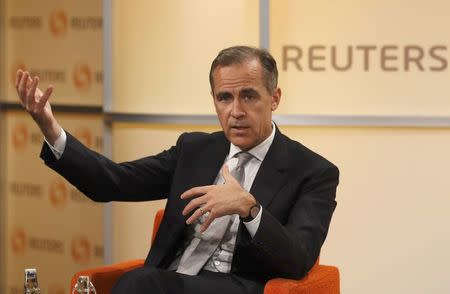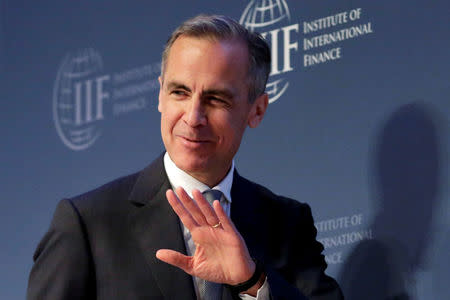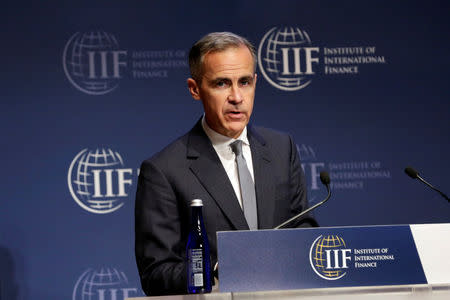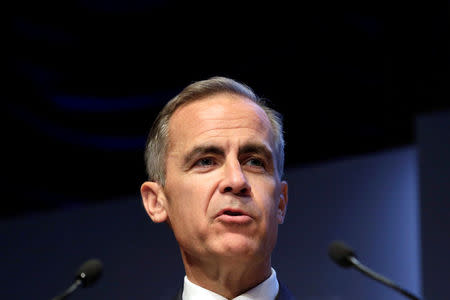Bank of England's Carney says financial rules must be 'dynamic'
By Francesco Canepa WASHINGTON (Reuters) - Bank of England Governor Mark Carney told bankers on Thursday that financial regulations devised after the 2008-09 crisis cannot be set in stone, and must be flexible enough to deal with unintended consequences and unexpected gaps. Speaking in Washington, where U.S. President Donald Trump plans to pare back banking rules he says hamper growth, Carney championed a "dynamic" approach to regulation that was flexible but ensured the global financial system remained resilient. "Implementation must not only be effective, it must also be dynamic," he told a conference hosted by the Institute of International Finance, a gathering dominated by major banks. "Authorities must learn by doing and make adjustments, as necessary, to optimise our efforts, without compromising on the level of resilience the reforms are intended to achieve," he said. Drawing on language first used in a speech at the London office of Thomson Reuters earlier this month, Carney said global regulation was coming to a fork in the road, with a risk of a return to mutual suspicion between regulators and inconsistent sets of national rules. Britain's departure from the European Union would be a litmus test for cooperation between regulators, he stressed. Carney said that the Financial Stability Board - a grouping of 20 leading central banks which he chairs - was working on a review of regulation since the financial crisis. "Specifically, it will assess whether G20 reforms are achieving their intended outcomes, identify any regulatory gaps or emerging risks, and flag any potential material unintended consequences," he said. Britain's central bank chief was more guarded about national attempts to review rules, though he did not mention any by name. "These are to be welcomed, provided the overall level of resilience is maintained," he added. An international consensus on regulation - such as that led by the FSB - was essential to avoid financial institutions playing one country off against the other, Carney said. But he stressed that the FSB did not have the power to force countries to act. "Decisions are ultimately matters for national authorities who - acting out of enlightened self-interest and in recognition of the benefits of a resilient and open global financial system - guide and discipline the reform process," he said. The U.S. Federal Reserve's participation in the FSB is opposed by some U.S. Republicans. On Jan. 31 Representative Patrick McHenry wrote to Fed Chair Janet Yellen urging her to stop working with the FSB, as he believed the FSB's views effectively proved binding on U.S. banks. Yellen rejected the lawmaker from North Carolina's argument, saying the Fed did not view FSB recommendations as binding, and sometimes adopted different standards to those discussed globally. (Additional reporting by Huw Jones; Writing by David Milliken; Editing by Andy Bruce and Catherine Evans)

 Yahoo News
Yahoo News 





